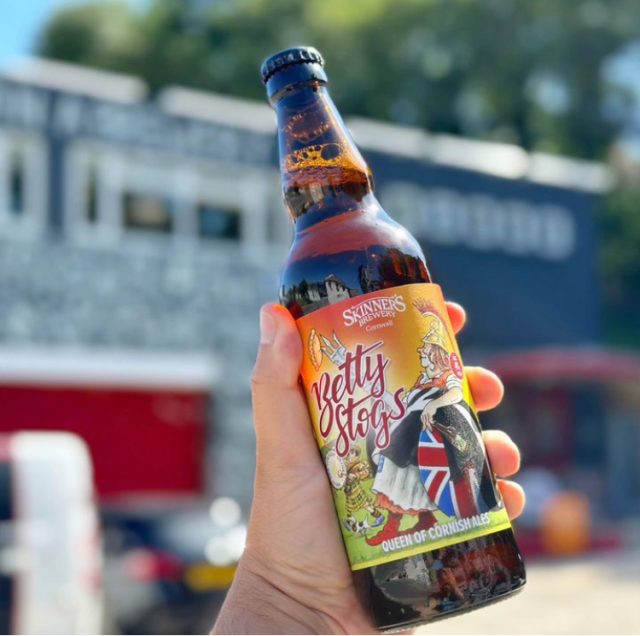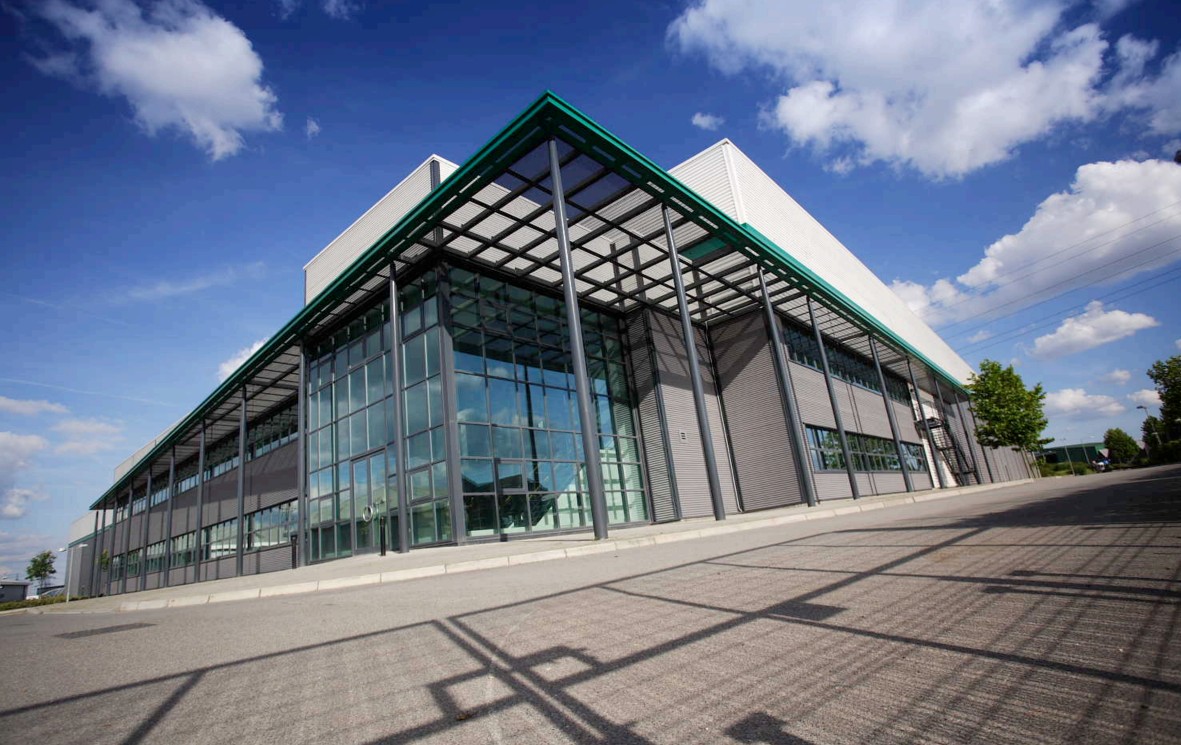How a team of Cornish brewers rescued Skinner’s from collapse
Cornish brewery Skinner’s was brought back from administration by a local resident and a team of brewers. Here, they explain the journey.

Skinner’s Brewery was rescued by Louis Simpson who, like many Cornwall residents, was dismayed in September 2022 when the brewery entered administration. But now, according to local reports, kegs are being washed and filled once again as 8,000 litres of the brewery’s popular core beer brand Betty Stogs are being brewed, bottled and canned.
Speaking in a deep dive interview with Cornwall Live, Simpson revealed that the move to buy the brewery out of administration was an empassioned one. He told local press: “There was no way in hell I was going to turn down the opportunity to bring Skinner’s back.”
According to Simpson, in the past he had “made a previous attempt at acquiring Skinner’s” and had always admired the brand, but this time round he knew it was important to save it from extinction and to preserve it in some way. He described how “I used to sit in Skinner’s bars in Newquay drinking Betty Stogs. I certainly didn’t imagine then that one day I’d own the brewery”.
Simpson said that the realisation dawned on him that he needed to step in and try to save Skinner’s from administration happened unexpectedly when he felt a pang of nostalgia and emotion for his hometown and its history – a feeling that led to him making his move to save the brewery in January this year. He revealed: “It was when someone started singing Cornwall My Home at a funeral I attended and my hair stood up on the back of my neck that I thought I must buy Skinner’s. It’s too special to let it disappear. It was too good an opportunity.”
Simpson had already initailly made his first foray into brewing when he launched the craft brewery Goodh (which means wild in Cornish) at Indian Queens in 2021. However, he insisted that at Skinner’s the resurrection of the brewery is more about closely linked to preserving something Cornish. The addition of a canning line and the addition of an e-commerce platform for the brewery to sell the beers online direct-to-consumer have been the only adapted elements.
Simpson explained: “We still have everything in bottles as before and on tap but we added a canning line too and sell online or directly from the brewery,”
He reassured: “We’re not looking at deals with Tesco or other supermarkets as before because when you sell through a supermarket you brew at cost. Right now, we want to fulfil our demand from local pubs and online customers. It’s certainly been a crazy few months going from dormant with a few issues to fix to producing beer on-site once again. But seeing people enjoy Skinner’s beers once again has been worth every bit of chaos we have had.”
Skinner’s Brewery, which was first set up by Steve Skinner in 1997, is based on the Newham industrial estate in Truro. Until reopening the tap yard at Skinner’s brewery, Goodh had its own tap bar at the Old Print Works in the Leats in Truro city centre but now fans of both breweries can reportedly come together and try a choice of 21 Goodh beers and eight ales from Skinner’s all under one roof in Newham.
Partner Content
Laura Perry, the marketing manager for the brewery said she has now noticed a cross-over between the traditional real ale drinkers and fans of more modern beer styles who are trying beers from both Skinner’s and Goodh. She revealed that Skinner’s core beers including: Betty Stogs, Porthleven, Lushingtons, Cornish Knockers, Hops & Honey, and Penny Come Quick are all returning.
Additionally, in a bid to support other Cornish drink businesses, Skinner’s will also serve up gin from Cornish Wreckers and Atlantic Distillery as well as vodka from Colwith Farm Distillery near Lostwithiel and Morvenna Rum from Bude, as well as Rattler cider from Healey’s at Callestick between Truro and Newquay.
Perry insisted that the project to rescue Skinner’s has been entirely focused on retaining Cornish roots and the historical attachment and a way to uphold something truly Cornish. She said: “The bottles will not be available anywhere outside Cornwall. So if you want to enjoy a bottle of Betty Stogs you’ll have to come to Cornwall and enjoy it in a local pub or here at the brewery. Cans on the other hand are already going all over the country. If you order online you can mix and match Goodh and Skinner’s too.”
Paola Leather, who used to be the head brewer at Skinner’s before she left to join St Austell Brewery, has returned and is now in charge of the brewing team. Leather said: “I love the beers that Skinner’s produces. And the team. It was very sad when it went into administration so when Louis asked me to be the head brewer it was a great opportunity to bring it back. I’m really pleased Louis reopened it, for the people who worked here and for the community across Cornwall. For them, it was important.”
Leather confirmed that the same brewing kit is still used to create the beers, but new vats with a greater capacity will be brought in at some point in the future to keep up with demand. She explained that Skinner’s beers will now be canned at Goodh’s home on the Moorland Industrial Estate in Indian Queens, but beers going into bottle will now be bottled elsewhere until a new line can be bought since the former bottling line at Skinner’s was not part of the administration rescue package.
Skinner’s chief brewer Adam Phipps who, like Leather, used to be on the brewing team before the business collapsed, described the shock of the business folding and how his return to his post has been an easy decision to make.
Phipps remembered: “We came in one day and we were told it would close at the end of that week. It came out of nowhere. Like a lot of people, I was gutted.” But, he added: “I came back as soon as I could because I love brewing. Working on this traditional kit is great. It’s not a computer doing it. It’s all you. There is a real passion for beer here.”
Matt Rowe who had previously worked for St Austell Brewery for five years before joining Skinner’s brewing team this year said: “It’s a new career opportunity and a new challenge too, brewing like it used to be. We’ve been trying to improve the ingredients and the consistency and ultimately the quality, but it’s all the same beers. Just better.”
Related news




